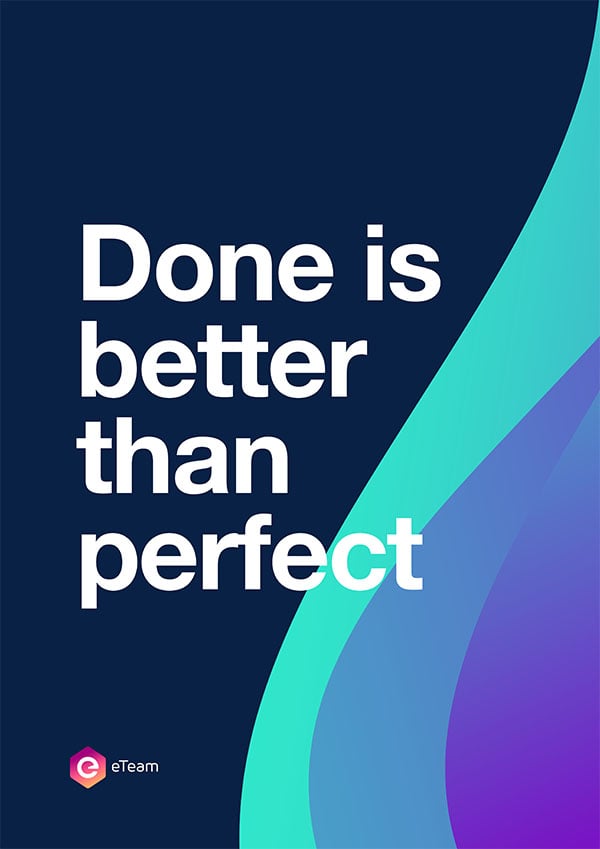Entrepreneurs looking to build their first startup desperately need good advice and strong mentors. Unfortunately some of the conventional wisdom floating around the internet is downright counterproductive.
I keep hearing the mantra "learn to code," but that's rather like telling an aspiring doctor to go to law school. Business knowhow, management skills, knowing the ins-and-outs of finance and having a killer marketing strategy will make or break you as a founder.
Coding is great for...coding
Let me be clear, coding is great. I work should-to-shoulder with colleagues who have dedicated decades of their lives to programming and computer science. I have nothing but the utmost respect for them.
First, let's unpack the logical fallacy behind most of the conventional wisdom and well-meaning advice: Startups depend on technology, technology depends on code; therefore founders should become programming whizzes. Upon closer examination this breaks down pretty quickly. Would welding make the top ten list of skills for an automotive CEO, do executives at big-brand clothing companies sew garments themselves, do publishing bigwigs know how to make paper at home?
Today's engineers are the descendants of the artisans of yore—the masons, sculptors and carpenters of the great palaces and cathedrals of the middle ages. Being a true artisan is a different skill set than running a successful business. Both vocations are noble and necessary in our society, but it's rare to pursue them together. In fact, if you go into a startup hoping to spend your days writing code, you're likely to be disappointed as most of your time is consumed by the business side of things.
Master emotional intelligence
As a founder, understanding people is your first priority. If you can't empathize with your clients and employees, even the greatest idea is going to sink. Two great books to start out with to hone your empathy and communication skills are Emotional Intelligence and Never Split the Difference.
.jpeg?width=600&name=blog-founder-skills-int3-1%20(1).jpeg)
Communicating effectively and understanding other people are skills to be developed. They aren't some inborn characteristics like people often picture when they think of the stereotypical outgoing salesperson schmoozing a client. That's not what I'm talking about at all: Listen, know how to state your point clearly and understand where other people are coming from.
Herding cats, otherwise known as management
Startups usually work in small, agile teams. Understanding agile management principles pays dividends, as founders are often the de-facto project manager during the early phases of a startup.
Invest the time and even money into management certification. A well-run standup can saves hours of work a day as you remove blockers that would otherwise leave expensive resources idle. Getting sprints right keeps development humming along.
Avoid the pitfall of perfectionism
In a world of infinite time and resources, everything could be perfect. Alas, that's not the quantum universe we're in! Instead, founders are faced with difficult choices between making 'perfect' products that never reach market or viable products that millions of people can already improve their lives with.

To remind myself of that reality, I printed off a sign with the famous quote "Done is better than perfect" and hung it in my office. Founders need to put business needs and getting products to market ahead of perfectionism.
Cold hard cash
Let's face it, you're in the startup business to make money. Without some basic business skills the greatest tech, management and people skills aren't going to turn a profit.
The things I study as an MBA student, prove eminently useful and relevant in running my own startup. If you can't enroll in a full program yourself, at least look for mentorship or coaching to guide you through the more difficult business concepts.
When it comes time to pitch your startup to investors, it's all about business. Whether your backend is in Ruby on Rails or Django isn't what investors are looking for. Stuffing your landing page full of buzzwords isn't going to cut it. Investors need numbers.
As a founder, you need to be able to calculate things like your customer acquisition cost (CAC). This number needs to be compared with the lifetime value (LTV) of a customer. This might seem obvious, but calculating CAC when you have large multi-channel marketing campaigns requires some serious data analysis and efficient campaign management. A back of the envelope calculation isn't going to cut it.
You really need to feel comfortable talking about things like monthly burn (how much you spend a month) and your startup's runway (how long until you run out of money in your current state). A quick way to get up to speed is to check out these KPIs.
Now what?
So you've got the business stuff down, you're ready to manage and have an idea you want to bring to life? Now you're ready to start talking tech. It's realistic to talk about building a web app for 15k, and I've worked with other entrepreneurs to launch successful startups doing just that. If you'd like to throw your hat in the ring and talk about building your startup, I'd love to chat founder to founder.








